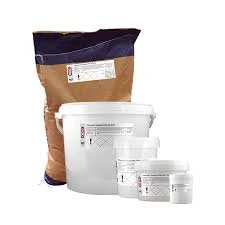
e252 food additive
Understanding E252 The Role of Potassium Nitrate as a Food Additive
In the realm of food additives, E252, known as potassium nitrate, occupies an essential niche in food preservation and processing. As consumers increasingly become aware of what goes into their food, understanding additives like E252 becomes crucial.
What is E252?
E252 is the European food additive number assigned to potassium nitrate, a chemical compound composed of potassium, nitrogen, and oxygen. Found in nature and commonly used in fertilizers, potassium nitrate is a versatile compound that has made its way into the food industry, particularly in preserving meats. It is important to note that potassium nitrate should not be confused with sodium nitrate (E251), which is another similar compound used as a preservative.
Historical Context
The use of potassium nitrate as a preservative dates back centuries. Historically, it was commonly employed in curing meats, a practice necessary for food safety and longevity before the advent of refrigeration. The compound works by inhibiting the growth of harmful bacteria, particularly Clostridium botulinum, which is responsible for botulism, a serious foodborne illness. By curtailing bacterial growth, E252 not only extends the shelf life of meat products but also enhances their flavor and color.
Mechanism of Action
E252 functions through its ability to form nitrite when ingested. Nitrite is the active ingredient that helps preserve meats, giving them a characteristic pink color while also enhancing the taste. When meat is treated with potassium nitrate, the nitrate is converted naturally within the meat to nitrite, leading to those desired attributes. This conversion also plays a crucial role in preventing oxidative rancidity, further contributing to the longevity and quality of preserved foods.
e252 food additive

Safety and Regulations
The European Food Safety Authority (EFSA) has evaluated the safety of potassium nitrate and deemed it acceptable for use within specified limits. However, like all food additives, there are guidelines on how much can be safely consumed. Regulatory bodies dictate the maximum levels that can be used in food products, ensuring that consumer safety is not compromised. Critics of food additives often raise concerns about their possible links to health issues, though most studies indicate that when consumed within regulated limits, E252 is considered safe.
Common Uses of E252
You will find E252 primarily in various cured meats such as bacon, ham, and salami. It is often listed among the ingredients, and products containing it may exhibit longer shelf lives and enhanced flavors. Beyond meat, it is also utilized in certain dairy products and fertilizers, showcasing its versatility. Such widespread use raises questions among health-conscious consumers, prompting them to look for natural alternatives.
Consumer Awareness and Trends
As consumers grow more ingredient-conscious, many are seeking out natural alternatives to traditional food additives. The rise in demand for “clean labels” has led some manufacturers to replace potassium nitrate with natural curing agents such as celery powder, which contains naturally occurring nitrates. While this shift aligns with consumer desires for transparency and less processed foods, it is essential to ensure that safety and preservation standards are upheld.
Conclusion
E252, or potassium nitrate, plays a significant role in food preservation, particularly in the meat industry. Its historical significance and functional benefits in enhancing flavor, color, and shelf life make it a valuable food additive. However, as consumer preferences shift towards natural ingredients, the future of E252 may evolve. Understanding this compound is crucial for consumers navigating the complexities of food labels and making informed dietary choices. Ultimately, the discussion surrounding food additives like E252 reflects broader themes of safety, health, and the evolving landscape of food production. As we continue to explore these dimensions, awareness and education will remain essential tools for consumers in making mindful decisions about their food.
-
What Is a Food Additive? Global Insights, Applications & Future TrendsNewsNov.24,2025
-
968 Sweetener: The Modern Solution for Health-Conscious SweeteningNewsNov.23,2025
-
Discover the Benefits and Uses of 965 Sweetener (Erythritol) | Tenger ChemicalNewsNov.23,2025
-
961 Sweetener - A Next-Gen Sugar Alternative for Health and IndustryNewsNov.23,2025
-
Understanding 960 Sweetener: The Modern Sugar Alternative for Health and IndustryNewsNov.22,2025
-
Everything You Need to Know About 955 950 Sweeteners – Benefits, Uses, and TrendsNewsNov.22,2025
-
953 Sweetener: Global Insights, Applications, and Future TrendsNewsNov.21,2025
Hebei Tenger Chemical Technology Co., Ltd. focuses on the chemical industry and is committed to the export service of chemical raw materials.
-

view more DiethanolisopropanolamineIn the ever-growing field of chemical solutions, diethanolisopropanolamine (DEIPA) stands out as a versatile and important compound. Due to its unique chemical structure and properties, DEIPA is of interest to various industries including construction, personal care, and agriculture. -

view more TriisopropanolamineTriisopropanolamine (TIPA) alkanol amine substance, is a kind of alcohol amine compound with amino and alcohol hydroxyl, and because of its molecules contains both amino and hydroxyl. -

view more Tetramethyl Thiuram DisulfideTetramethyl thiuram disulfide, also known as TMTD, is a white to light-yellow powder with a distinct sulfur-like odor. It is soluble in organic solvents such as benzene, acetone, and ethyl acetate, making it highly versatile for use in different formulations. TMTD is known for its excellent vulcanization acceleration properties, which makes it a key ingredient in the production of rubber products. Additionally, it acts as an effective fungicide and bactericide, making it valuable in agricultural applications. Its high purity and stability ensure consistent performance, making it a preferred choice for manufacturers across various industries.





